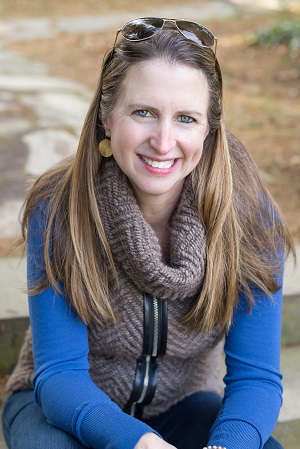Villanova English Professor and Merton Visiting Scholar Megan Quigley Teaches T.S. Eliot for a New Generation of Students

About two years ago, Megan Quigley, PhD, an Associate Professor of English at Villanova University, began to notice a stark change in the types of questions her students had while discussing famed poet T.S. Eliot’s 1922 seminal work, The Waste Land. In past years, Quigley, who has taught British and Irish literary modernism at Villanova since 2008 and was awarded the College of Liberal Arts and Sciences’ Tolle Lege Award for Teaching Excellence in 2014, focused The Waste Land classes on the violence of World War I, a main theme of the work. However, her students, who came of age in a time of shifting societal views on sexual harassment, assault and consent, wanted to talk about a different theme which has been historically overlooked in Eliot scholarship—his representations of sexual violence.
“I’d be talking about World War I, the bloodshed of soldiers and the invention of lethal technology because I thought that’s what students were most interested in, and of course these are still central themes of the poem,” Quigley said. “But instead, students would say, ‘Wait, what’s happening in this scene to this young woman?’ And they were getting in to vigorous debates about Eliot’s depiction and symbolism of sexual violence and gendered power dynamics.”
According to Quigley, these student discussions led her to think more about how to connect the themes of the violence of war and violence against women in her teachings on Eliot.
“Violence against women has always been a theme in this work, but now it’s what students really want to discuss—and not just to make the women symbols for some other important cause,” Quigley said.
With the help of a Villanova summer research fellowship, Quigley spent June 2018 as a Visiting Scholar at Merton College, Oxford. There she had access to Eliot’s private correspondence, drafts, and prior editions of his work and, nearby at Oxford’s famed Bodleian Library, the diary of his first wife, Vivienne Eliot, who collaborated on portions of The Waste Land. These collections provided her with further insight into the themes of sexual violence in Eliot’s work and, along with the evolving student discussions in the classroom, inspired Quigley to delve further in to this topic with other scholars.
“Students are so different from living in this #MeToo age. Our students have led us to change how we teach. They don’t just see #MeToo as part of changing gender roles, but are really focused in on consent, sexual violence, and how these two topics are connected, but different as well.”
Quigley organized a roundtable of seven scholars at an annual meeting of the T.S. Eliot Society at Emory University in September 2018 entitled, “Reading The Waste Land with the #MeToo Generation.”
“I wanted to find an intersectional group of scholars at different points in their careers to offer a variety of perspectives,” Quigley said.
The resulting discussion was such a success that the group decided to take it a step further and collaborate on a suite of essays, with each contributor drafting an essay on one key word that they believe is central to the themes of The Waste Land and the growing international movement against sexual harassment and assault, including the words “no,” “voice,” “silence” and “boundaries.”
The suite of essays, introduced by Quigley, were published in the March 2019 issue of Modernism/modernity, an international academic journal focused on 20th-century British literature.
“The Waste Land is a perfect test case for teaching modernist literature to the #MeToo generation because as a work, it is such an ambiguous and challenging read, so we can see how student viewpoints and values have changed over the years in their interpretations of the poem,” Quigley said.
